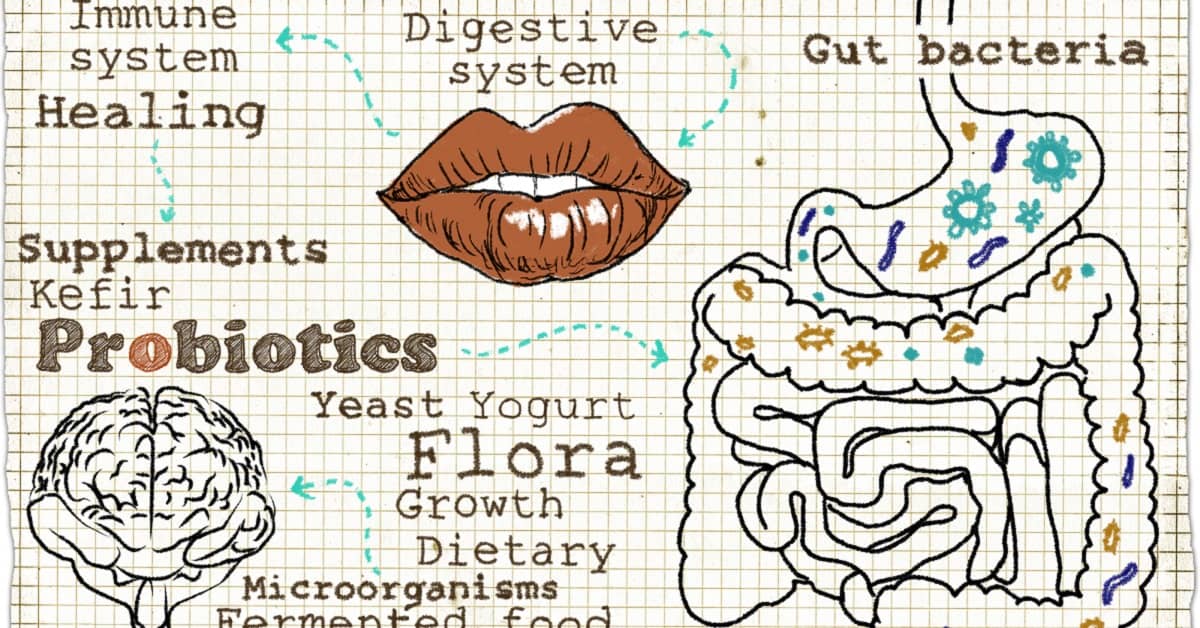
Did you know that one important key to improving your mental health might not lie in therapy or medication but deep within your gut? Groundbreaking research reveals a fascinating connection between your gut microbiome and your brain, turning probiotics—the "good bacteria"—into potential game-changers for mental well-being. Dive into this eye-opening discovery and learn how tweaking your diet could reshape your emotional and cognitive health.
Key Takeaways
Feeling Down? Your Gut Might Be the Reason
The Truth About "Mental Illness"
The Gut-Brain Connection
Japanese scientists first demonstrated the link between gut microorganisms and the nervous system in 2004, with a study in mice. Since then, studies in animals have shown probiotics can improve symptoms of anxiety, stress, depression, chronic fatigue, autism, Alzheimer's, and vascular dementia. However, the real test of probiotics is whether they can achieve similar results in humans. In the review, the researchers presented several studies showing probiotics, either in foods or as supplements, can significantly improve human brain function compared to placebo. For example, probiotics helped:- Improve mood in healthy volunteers.
- Decrease anxiety symptoms.
- Reduce psychological distress, depression and anger or hostility.
- Diminish negative thoughts associated with a sad mood.
- Improve depression, anxiety, and stress scores.
- Relieve stress in healthy medical students prior to sitting for their exams as measured by a reduction in salivary cortisol and physical symptoms of stress.
But How Do Probiotics Help Your Mental Health?
A huge amount of research is currently directed at the remarkable four pounds of bacteria, viruses, fungi and protozoa that reside in the intestinal microbiome. When these microbes are in healthy balance, all hundred trillion of them, they produce compounds that positively influence the brain. These compounds are called psychobiotics. For instance, as much as 95 percent of the "happy" hormone serotonin is produced in the gut. The microbiome also produces other neurotransmitters such as acetylcholine and glutamate, which are involved with learning and memory; the amino acid GABA, which calms nerve activity; and the sleep hormone, melatonin. It’s important to note that deficiencies of some or all of these compounds are seen in people with anxiety, depression, mood disorders and dementia. It’s also no surprise that the research shows people suffering from these problems can have impaired amounts and composition of gut bacteria compared to the mentally healthy. Fortunately, the microbiome is not set in stone. You can change your microbiome for the better by simply consuming probiotics.Taking Probiotic Foods and Supplements
The most popular and accessible probiotic food is yogurt, as long as the label states it contains live cultures and minimal sugar. Others include kefir, fermented soybeans (miso, natto, and tempeh), fermented black tea (kombucha), and cultured vegetables such as sauerkraut and kimchi. Instead of, or in addition to foods, a wide range of supplements are available, from capsules and liquids to powders and chewable products. Probiotics are measured in colony-forming units (CFU), which indicate the number of viable cells. Most supplements contain between one and ten billion CFU, but some contain much more. Most research on human brain performance used one billion CFU of lactobacillus and bifido probiotic cultures. These studies suggest that while results don’t happen overnight, positive effects on mood and memory appear in about four weeks.Summary
This article explores the groundbreaking connection between gut health and mental health, highlighting how probiotics can improve mood, alleviate anxiety, and even support cognitive function. Drawing from extensive research, including human trials, the findings reveal that probiotics positively impact the gut-brain axis by producing compounds like serotonin and GABA. Incorporating probiotic-rich foods or supplements into your diet could be a transformative step toward achieving better mental well-being.
